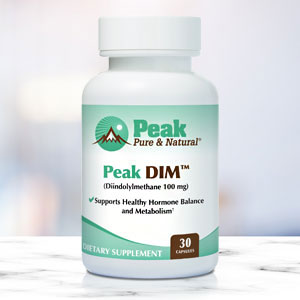Get Easy Health Digest™ in your inbox and don’t miss a thing when you subscribe today. Plus, get the free bonus report, Mother Nature’s Tips, Tricks and Remedies for Cholesterol, Blood Pressure & Blood Sugar as my way of saying welcome to the community!
Optimizing vitamin D gets personal

If there were a single powerhouse vitamin that everyone should take, it would have to be vitamin D.
After all, research has tied the sunshine vitamin to numerous health issues including boosting testosterone levels and reducing heart attacks to keeping away back pain caused by disc degeneration, delaying frailty and reducing dementia diagnoses.
But there’s a catch… If you’re not getting enough of the vitamin, its protective and preventive benefits are beyond your reach.
And all indications are that, despite everything we’re learning about the vitamin’s role in human health, researchers say there’s a long-standing population health issue of vitamin D deficiency — and it’s personal…
A confluence of personal factors impacts vitamin D status
After decades of conflicting results on scientific studies analyzing vitamin D’s health effects, the scientific community has started to look much closer at vitamin D status and factors that can impact it.
For instance, we’ve known for some time that weight is a risk factor for vitamin D deficiency.
Research has shown a body mass index (BMI) of over 40, classified as severe obesity, increases the risk for vitamin D deficiency by 18 to 23 percent compared with those with a BMI under 40.
Now in a huge undertaking, Trinity College Dublin is shedding light on the complexities of achieving optimal vitamin D status…
Using data from half a million participants from the United Kingdom, researchers calculated the individualized estimate of ambient ultraviolet-B (UVB) level — the wavelength of sunlight that induces vitamin D synthesis in the skin — needed for each person.
Then they performed a comprehensive analysis of key determinants of vitamin D and their interactions. Their research revealed two novel insights that explain several factors that impact optimal vitamin D status across diverse populations of people:
- The amount of ambient UVB you’re exposed to is a critical predictor of vitamin D status, even in a place like the UK, which receives relatively little sunlight. In other words, even if exposure to sunlight is little or low — you must get some.
- Other factors influence how your body responds to vitamin D exposure — including your:
- Age
- Sex
- Body mass index (BMI)
- Cholesterol level
- Vitamin D supplementation
For example, the researchers say as BMI and age increase, the amount of vitamin D your body produces in response to UVB decreases. Taking into account all the factors that influence vitamin D levels, the evidence is mounting that it’s certainly not a one-size-fits-all vitamin.
Interesting Facts about vitamin D: RDA, upper limits and more
Professor Lina Zgaga, Associate Professor of Epidemiology, Department of Public Health and Primary Care, School of Medicine, Trinity College and the principal investigator, shared this statement…
“We believe our findings have significant implications for the development of tailored recommendations for vitamin D supplementation. Our study underscores the need to move away from a one-size-fits-all approach towards personalized strategies for optimizing vitamin D status.”
Unfortunately, it may take the medical community a while for that message to sink in — even though it’s a message they’ve heard time and again…
Groups like the Council for Responsible Nutrition have revealed that in addition to reducing chronic conditions, billions of dollars in U.S. healthcare costs could be slashed if more people received adequate amounts of vitamins and minerals — including vitamin D.
That means it’s up to you to advocate for yourself. Here are some fast facts about vitamin D that may help:
- Your doctor can check your vitamin D status as part of your yearly blood work. But don’t be surprised if your health insurance doesn’t cover it.
- In the case of deficiency, most doctors will prescribe a regimen of very high dosages (as high as 50,000 IUs per week) over a period of 8 weeks. Dosages this high should never be taken except under the guidance of a physician. After 8 weeks, they typically prescribe about 1,000 IUs per day to maintain levels.
- The RDA of 600 IU is an underestimation due to a calculation error. In 2015 researchers at UC San Diego and Creighton University challenged the intake of vitamin D recommended by the National Academy of Sciences (NAS) Institute of Medicine (IOM), stating that their RDA for vitamin D underestimates the need by a factor of TEN!
- The Endocrine Society suggests at least 1,500 to 2,000 IU daily and at least 4000 IU in the winter months. For those who are overweight or obese, they suggest two to three times the amount.
- 5,000 IU of vitamin D is considered a safe, therapeutic amount for adults. A ten-year study of 4,700 patients starting at 5,000 IU found no adverse reactions or hypercalcemia (a buildup of calcium in the blood that’s the main sign of vitamin D toxicity) at the dose.
- The Center for Responsible Nutrition identifies 10,000 IU daily as the tolerable upper limit for vitamin D supplementation, based on the absence of adverse effects at this level of supplementation in clinical trials of sufficient size and duration and under a variety of conditions.
- According to the Mayo Clinic, taking 60,000 IU a day of vitamin D for several months has been shown to cause hypercalcemia.
Editor’s note: Are you feeling unusually tired? You may think this is normal aging, but the problem could be your master hormone. When it’s not working, your risk of age-related diseases skyrockets. To reset what many call “the trigger for all disease” and live better, longer, click here to discover The Insulin Factor: How to Repair Your Body’s Master Controller and Conquer Chronic Disease!
Sources:
New study challenges one-size-fits-all approach to vitamin D supplementation guidelines – ScienceDaily
What is vitamin D toxicity? Should I be worried about taking supplements? – Mayo Clinic
THE COMMON SENSE RULE FOR BEST VITAMIN BENEFITS – Easy Health Options














